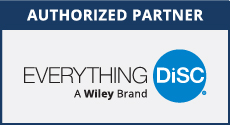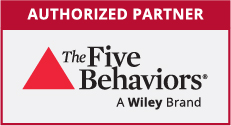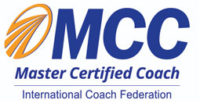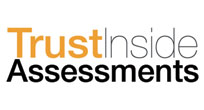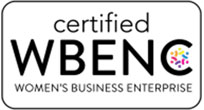| People-Whispering Tip:One doesn’t need to look too far for examples of companies that are failing because they have clung to outdated mindsets based upon hierarchy, autocracy, paternalism, and bureaucracy. These modes of “command and control” style management are thankfully nearing their completion in the world of business today. Global markets and technologies which democratize access to information are just a few of the trends supporting this shift. The shift is not happening without resistance however.
Many of today’s “senior management” are products of decades of business management programming with deeply-rooted hierarchy and control issues. Many of the leaders I have worked with would rather see themselves as generals leading an army, instead of the coach-facilitator leader they know might be more effective. Many senior leaders fear the prospect of giving up control because they fear negative results. Sadly, many business schools still give students primarily a technical education and a sense of self-importance, but neglect to emphasize the essential understanding of what makes people tick or the importance of ethical values and social responsibility while still making a profit. Recent events in the Gulf are a glaring example of poor leadership in my humble opinion. It is time to rethink what authentic power really is. It seems as if many in the traditional business world fall into the trap of being overly impressed with the intellect and credentialing and overwhelmed by emotions at work. This I have never understood as it seems to be obvious that we bring our whole selves to work. If I have to leave my passion, energy, talents and commitment at the door to get through my workday, imagine the loss of potential to the company as well as to the individual. This challenge has been around for some time in that employers are always interested in ways to boost productivity, commitment, and job satisfaction for obvious self-serving reasons. I was delighted to see that this summer’s HBR’s OnPoint magazine (selected articles from Harvard Business Review) highlights articles on “Reawakening Your Passion for Work” and “The Human Moment at Work” among others. Even if you are not a “senior leader” in your workplace or organization, you can benefit from understanding how to shift from a “command and control” mindset to a more facilitative coaching leadership style. I like to think of it as tender power which is an end result of effective people-whispering. And people-whispering comes down to some conscious communication and action guidelines. One of the first keys to doing this effectively is to act from the healthiest part of your personality that you have access to in the moment. This requires self-awareness which is the first step to emotional intelligence. When I interpret the DiSC® Personal Profile and other self-assessment and awareness tools for people, I am careful to point out that all styles have natural strengths and fears which can result in blind spots without awareness and intention. The more you explore your intentions, the more behavioral options you will create. Yet regardless of your behavior, people can always read whether you are coming from love or fear. Loving intentions create real, tender power. Between the stimulus and response, or stated more concretely, between the time some event or person triggers you and you are tempted to lash out, manipulate, caretake, fix, teach, judge, blame, gossip, etc., you have a choice. That choice is to act from a loving part of your personality or to react from fear or an unhealed place within yourself. The best way to become conscious of which part of yourself you are coming from is to choose your intention before you speak or act. Doing this allows you to choose the consequences that your words or actions will create in those around you. And remember, being a true leader regardless of position or title is about creating a positive healthy environment around you like a petri dish where a healthy culture can grow. If you are not sure of your intentions, you might ask yourself “what is my motivation?” before speaking or acting. You can go within and consult your intuition or inner voice and be clear that you are coming from inspiration and shared responsibility, power-with versus power-over. The DiSC® Personal Profile can give you insight into your fears and strengths as well as how you might behave under pressure or judge others. This awareness is not to chastise you or make you feel badly about yourself. Instead, self-knowledge about our potential shadow side gives us power when we shine a light on it. From this awareness, we can make thoughtful, heartfelt, intuitive solutions for the highest good of all concerned. This is the mindset and heartset of the 21st century leader. For more on this topic, I encourage you to read my award-winning article, “Leading with Love.” I will also be starting a blog on this topic soon in addition to the People-Whispering blog. Stay tuned and for practical tools and application on how to apply this to your business, feel free to call us at 404-327-6330 or email me at Laura@lauraadavis.com. |
| DiSC® Assessment Application:Last weekend, I had the opportunity to go to the exhibition, “Diana: A Celebration” which was the award-winning exhibition paying tribute to the life and work of the late Diana, Princess of Wales. It was a moving and inspiring showcase of her life and work and brought back memories of what was occurring in my life during major events in her very public and short one.
Whatever may or may not have been true of Diana, Princess of Wales, she had an indisputable ability to connect with all kind of people to uplift and inspire them. Known for her charity work, she was called “the Peoples’ Princess” and often took on unpopular, unfashionable causes including AIDS, leprosy, and landmines among others. She seemed to listen with empathy to others who weren’t often heard. How well do you listen to others?If we relate this to the DiSC® Personal Profile, the Personal Listening Profile, and other self-assessment tools, we can see how she used her intuitive knowledge of how to connect to others to make a positive impact. Diana had a knack for “people-whispering” in that she knew how to get people talking, adapt to their style in order to cross the bridge into their world, and partner together with them going forward. I was struck by her compassionate leadership. Let us all be reminded of the incredible positive impact tender power can have in whatever context you find yourself a leader in business, in the non-profit world, in your family, in your community. |
| Transformational Coaching Tip:I mentioned the HBR OnPoint Summer 2010 issue earlier and found it so rich I had to come back to one of the articles entitled “Retention Through Redemption.” The article shares the story of demoralized employees (sailors) cheering as their departing CEO leaves the company (the ship).
This is exactly what happened when the USS Benfold’s unhappy crew bid their captain farewell in 1997. Today, the vessel is the pride of the Pacific fleet such that sailors from other ships are clamoring to join its crew.The new captain of the ship attributes his success to breaking bad habits and jettisoning old attitudes starting with his own.Here are the key lessons learned which fit nicely into our theme of tender power this month.
I encourage you to read the article for more and to call us at (404) 327-6330 or email me at Laura@lauraadavis.com for ways to operationalize these best practices into your workplace. |


